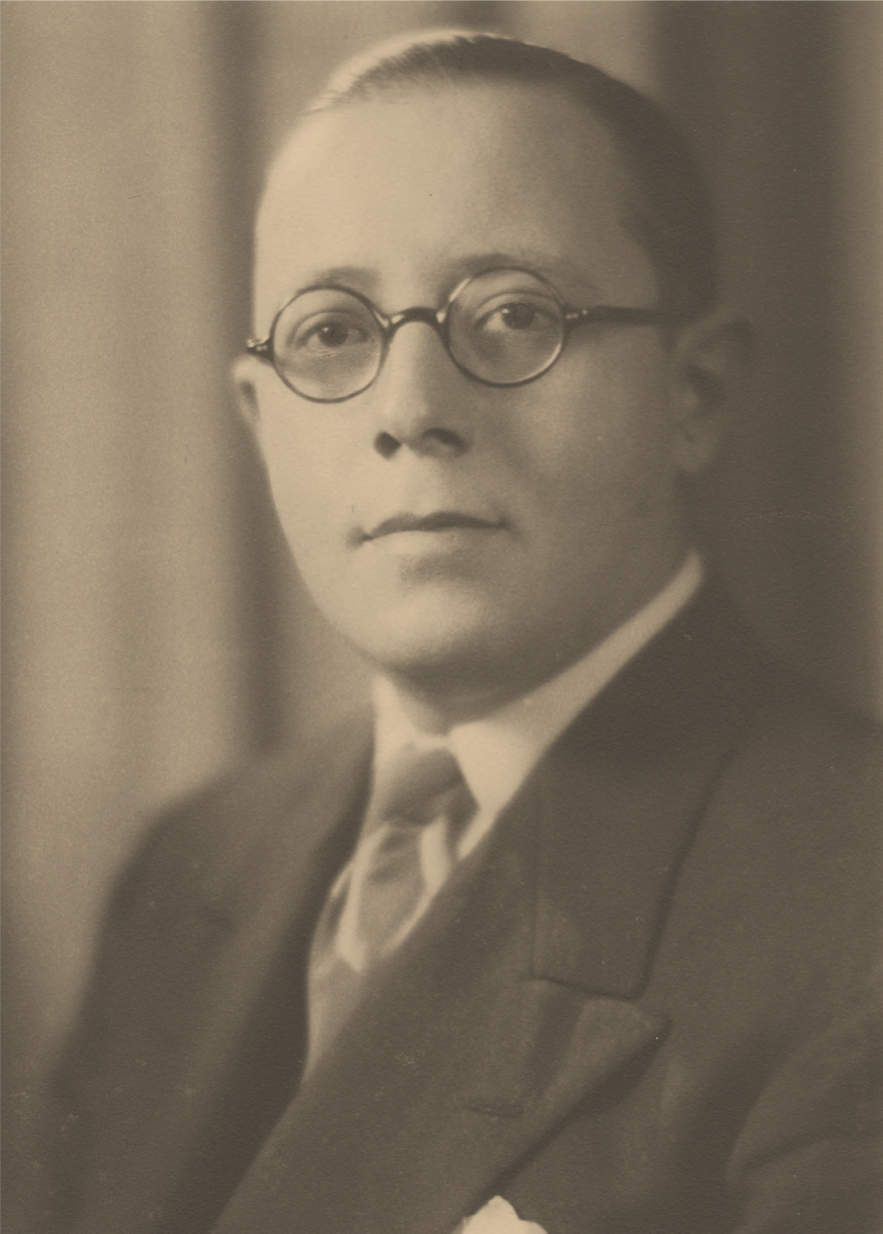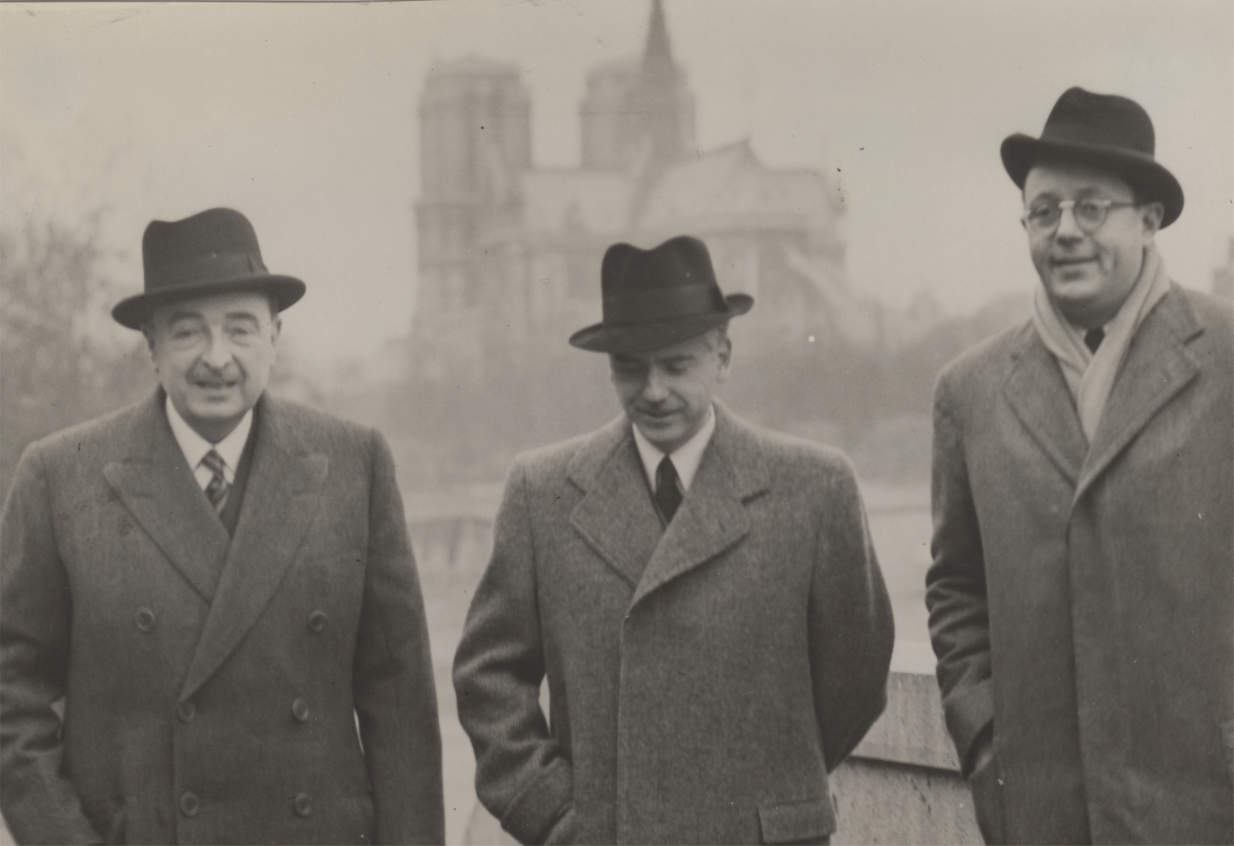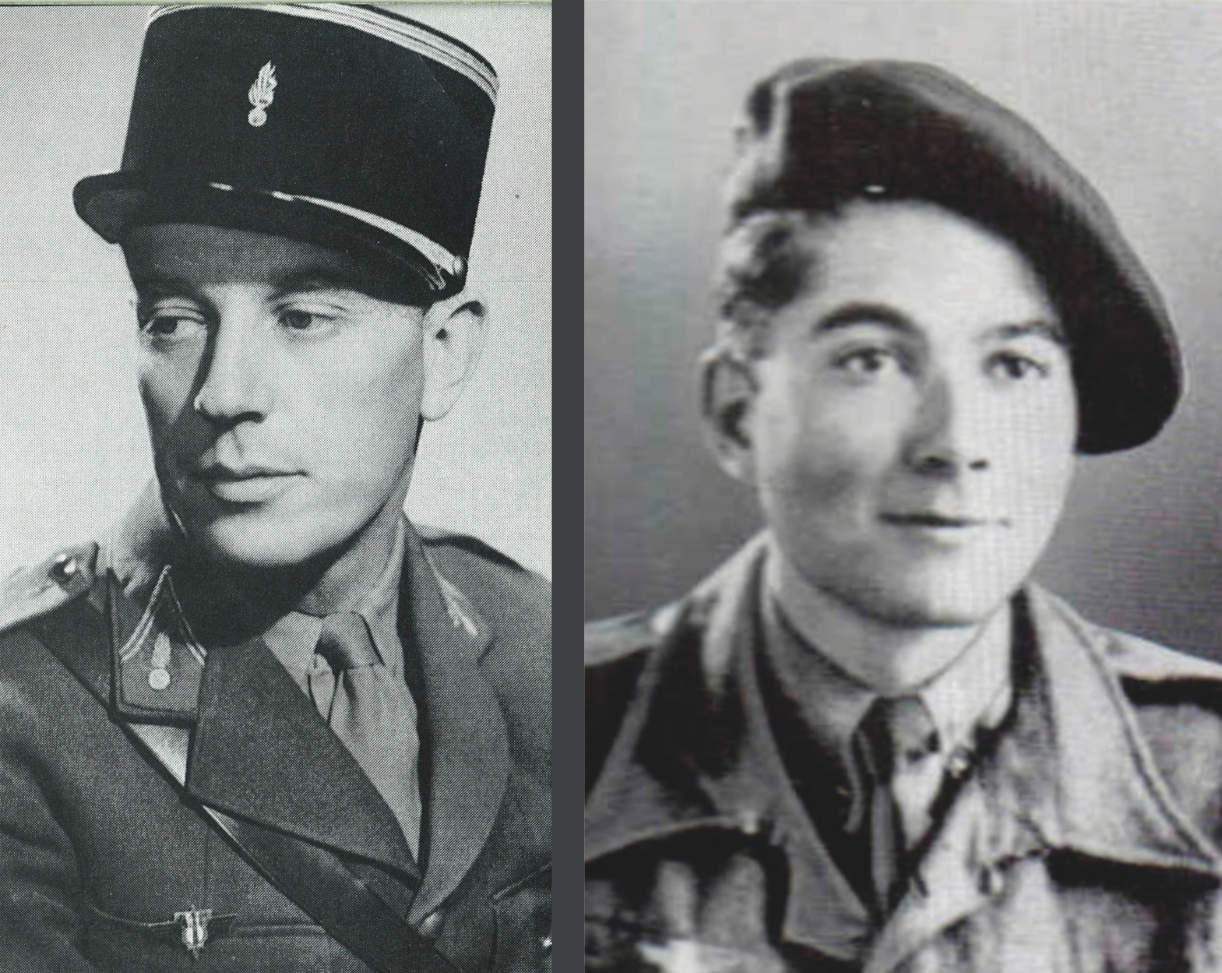PRESS ATTACHÉ (PARIS-VICHY-ALGIERS, 1939-1944)

ANTONIO ZULOAGA DETHOMAS
Assisting escape
Born in Bordeaux, Antonio Zuloaga Dethomas (1906-1981) was the son of the famous Basque painter Ignacio Zuloaga, and his mother, a Frenchwoman, was Valentine Dethomas. He was born into a family of politicians and bankers with valuable friendships in cosmopolitan Parisian society (Marshal Pétain and Pierre Laval, for example), which would benefit him in his diplomatic activities.
From November 1939 to late 1942 he was a press attaché at the Embassy in Paris and in Vichy. Afterwards, and until late 1944, he was posted as an attaché to the Consulate in Algiers to the French Committee of National Liberation.
Recruited in Paris by Albert Naud, in September 1940 he began working with the Resistance in the Musée de l'Homme network. One year later, in Vichy, he met Suzy Borel, a French diplomat, the wife of Georges Bidault —who would later become Prime Minister — and who was known as The Queen for being a prominent agent in several Resistance networks, such as Combat, NAP and Martial-Armand. Zuloaga, taking advantage of the fact that he was a diplomatic agent and of his constant trips between Paris and Vichy, began working discreetly helping the persecuted, assisting Borel and his affiliate "Escape" to make it possible for many members of the Resistance and prominent French Jews to escape to Spain.
Among the latter, he helped Jewish leader René Mayer, who was able to reach Spain in January 1943, after several failed attempts. There, Mayer was reunited with his son Antoine, who had also crossed the border with two colleagues, wider false Canadian names. René Mayer, who became a good friend of Zuloaga, would become a prominent politician, was a government minister on several occasions, the Prime Minister of France in 1953, and, two years later, Jean Monnet's successor as President of the High Authority of the European Coal and Steel Community (ECSC).
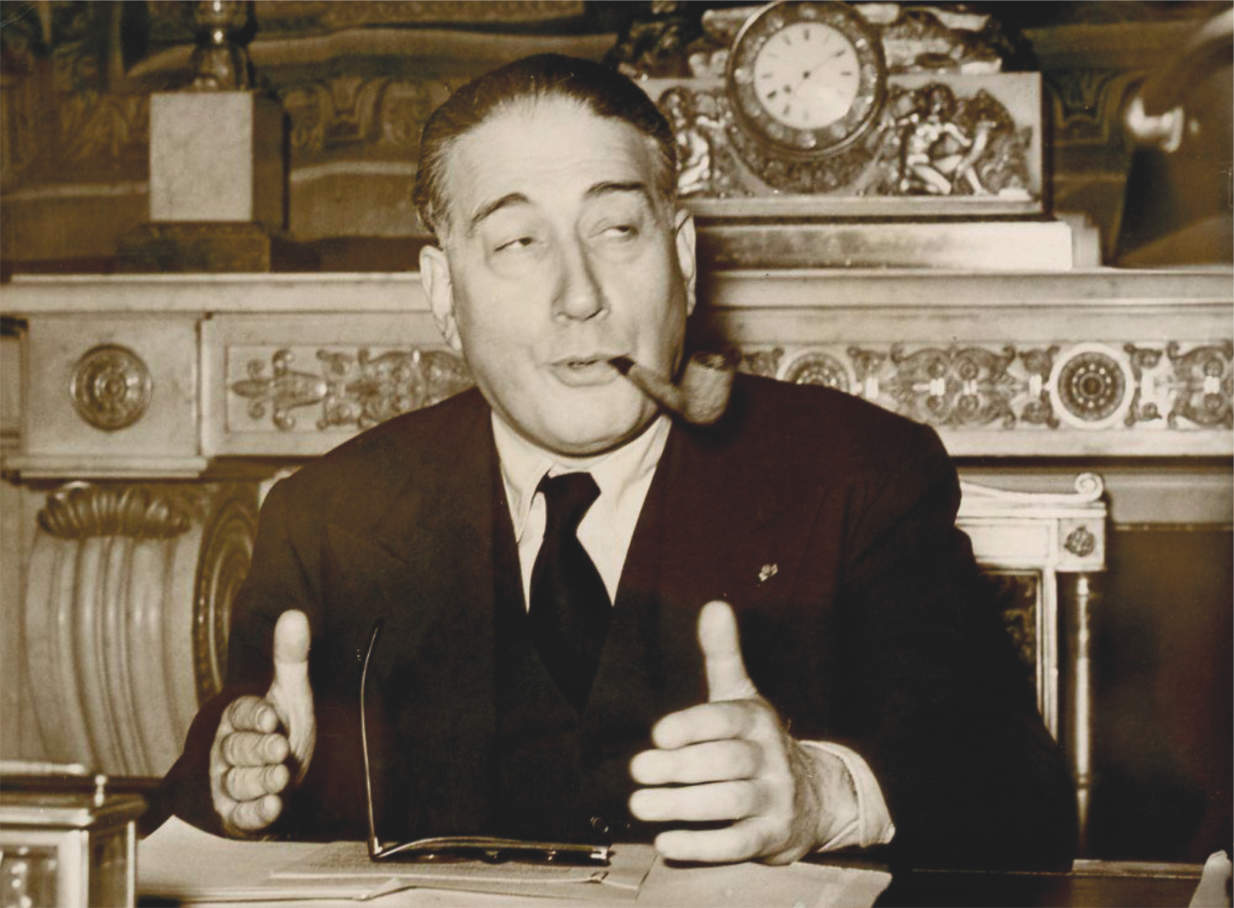
Philippe de Rothschild, who was helped by Zuloaga to escape to Spain.
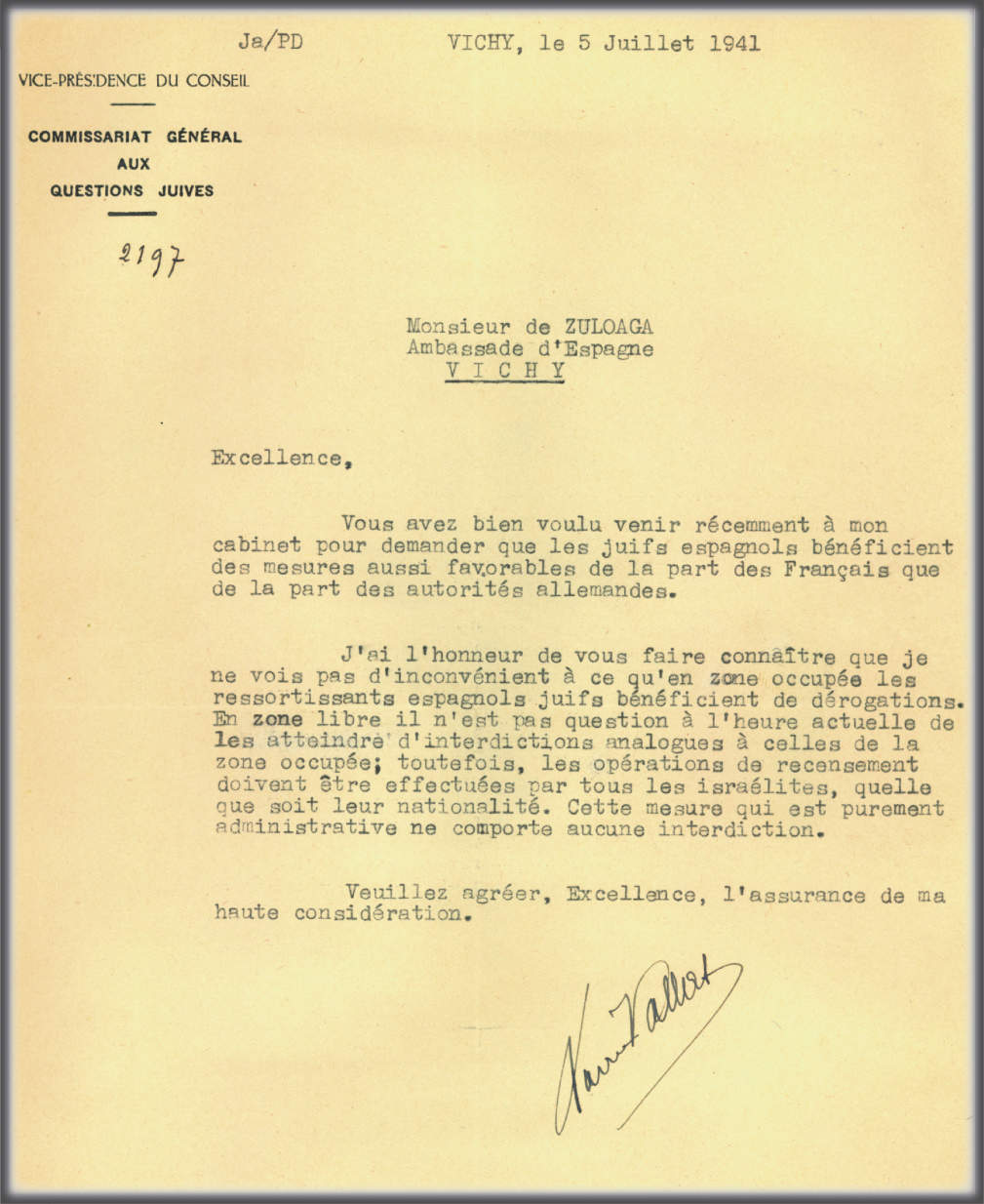
Letter from Xavier Vallat, head of the General Commissariat for Jewish Affairs, reporting Antonio Zuloaga's actions in Vichy.
Zuloaga's intervention was also essential in making it possible for descendants of Baron Rothschild (an old friend of his and of his mother, Valentine) — namely his two sons, Philippe and James, as well as Claude, Philippe's wife and their two daughters — to reach Spain in different operations. In the 1960s, the two children of Zuloaga's wife would be hired at the Rothschild Bank.
Zuloaga was also one of the main conduits for communication between the Embassy of Spain and the General Commissariat for Jewish Affairs, and with its head, Xavier Vallat, an extreme rightwing Catholic leader, supporter of Spain's National Cause in 1936, and with strong ties to Franco's regime after its Civil War. Thanks to this close relation, he was able to intercede before Vallat on behalf of Spanish Sephardim residing in Vichy France so that they could benefit from more benevolent measures. He was not able to have them exempted from registration on the Jewish census, but what he did obtain was for Spanish administrators to replace the French administrators who had been imposed to manage their affairs.
All of this underground activity did not go unnoticed by the Falange Party leaders at the Consulate in Paris — who were against Zuloaga for his connection to the monarchist Quiñones de León — and by powerful French Vichy extreme right-wing collaborators. They began to suspect that Zuloaga was involved in the escape of certain prominent Jews and, faced with the danger of being reported to the Germans, he had to leave the Embassy in late 1942 and shortly afterwards was sent to Algiers.
Zuloaga also drew the attention of Spain's information services, with which he worked. General Juan Vigón, Army Chief of Staff, noted that during World War II, Zuloaga carried out "humanitarian actions, always very discreetly and skilfully [...] which enabled him to have close connections to the most influential French authorities of the time".
Later, in Algiers, thanks to Zuloaga's friends among the supporters of Generals Giraud and De Gaulle (such as Major Serge-Henri Parisot, head of the counter-espionage service), a certain number of Sephardim holding Spanish passports were accepted on board repatriation ships heading towards North Africa organized by the French Committee of National Liberation.
Even though Zuloaga continued as an honorary attaché until the late 1960s, and was an extremely useful liaison between the Embassy in Paris and France's most important social and financial circles, after 1945 Zuloaga became a businessman linked to the magnate Juan March for the rest of his life.

 Loading
Loading

